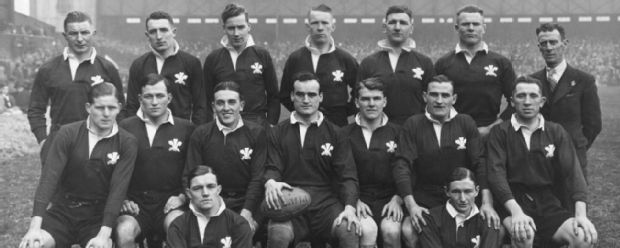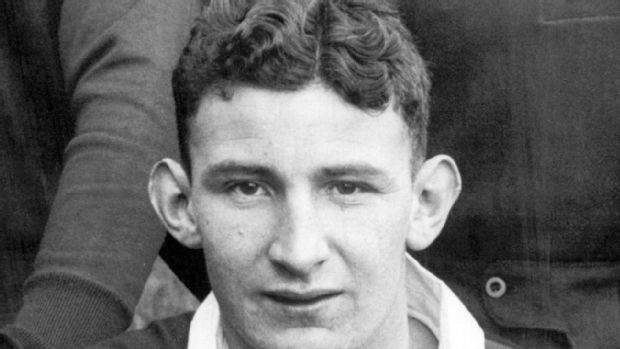|
Wales
When Wales beat the All Blacks: 'Three kicks. Three lucky bounces. Three tries'
Huw Richards
December 21, 2015
 © S&G As neither the first nor the most recent of Wales's three victories over the All Blacks the match which took place 80 years ago, on December 21 1935, at Cardiff Arms Park is slightly overshadowed by the events of 1905 and 1953. But any victory over the All Blacks is significant, and this may have been the greatest spectacle of the three -- the match that would have been memorable for itself, even when detached from its context. JBG Thomas would write of it in 1958 as "the most exciting international match ever played in Wales" while Howard Marshall, reporting for the Daily Telegraph reckoned that "I never saw a more splendid match, fine in spirit and performance and strong endeavour" and that "they will still be telling the story of all of it in 50 years' time". Its place in the tour was also different to those of the other two Welsh victories. All were played in the second half of December, but the match of 1905 came after every other home nation had been beaten and that of 1953 was the first international of a tour which extended until March. The All Blacks of 1935 came to Cardiff having beaten Scotland (18-8) and Ireland (17-9) in the previous month, but also still bearing the marks of their first ever defeat by a club side, 11-3 at Swansea in the early weeks of the tour. That defeat also had its impact on Welsh selection. There were five All Whites in the chosen team including the captain, Claude Davey, a bulldozing centre in the later tradition of Jack Matthews and Scott Gibbs who had scored twice in the match at St Helens, and prodigious 18 year old scrum-half Haydn Tanner, still a Gowerton schoolboy. Wilfred Wooller, Wales's powerful big-striding centre, had been moved to the wing to accommodate the all-Swansea combination of Davey and all-round footballer Idwal Rees at centre while seven clubs were represented in a pack in which another teenager, prop Eddie Watkins, was part of an all-debutant front-row.
New Zealand's main worry was that Pat Caughey, who had converted to second five-eighth because of injuries at the start of the tour and excelled to the extent of nailing down a test place and scoring a hat-trick in the defeat of Scotland was now himself injured. As was so often the case at the old Arms Park, the match was threatened by bad weather. Tons of hay was heaped on to the surface in the days before the match to protect it from ice and frost and JBG Thomas recalled that even so, referee Cyril Gadney -- brother of England captain Bernard -- was only just convinced that it was playable. All Blacks Eric Tindill and Charles Oliver, who co-operated on an account of the tour, recorded that the weather on match day, with 50,000 crammed into the Arms Park, was perfect but that the surface was "a trifle hard and slippery in places". As if to prove that point Welsh full-back Vivian Jenkins' feet went from under him as he fielded Jack Manchester's kick-off behind the try-line and he barely managed to recover and touch down before All Black pursuers were upon him. New Zealand dominated the first half-hour, with Wales forced into non-stop defence with Rees and Davey outstanding, Wooller recording later that "we were mortally afraid of a snap try". New Zealand did finally break through when wing Nelson Ball scored, but a 3-0 lead was a limited reward for their early dominance. The match swung in the first few minutes after the break. First Wales outside-half Cliff Jones jinked through a series of defenders then punted, for Davey to gather and charge over from around 20 metres. Then Jones released Wooller, restored just before the break to his usual place at centre, and the giant charged away, hoisted a huge up and under and overhauled full-back Mike Gilbert in the chase. The bounce evaded him at the New Zealand line but wing Geoffrey Rees-Jones was up in support to score. Jenkins converted both, and after arguably the best six minutes in Welsh rugby history, they led 10-3. Tindill and Oliver reported that their team was 'badly rattled by such a change in fortunes', but the All Blacks characteristically responded vigorously. Jones, in a rare error, missed touch and Gilbert landed a huge, flat-trajectoried drop goal -- then worth four points to three for a try -- from the touchline some 40 metres out. When he tried another, it fell between Davey and Rees-Jones, each of whom hesitated to let the opportunistic Ball in for a try which Gilbert converted to make it 12-10. Welsh disbelief turned to something much worse when a loose scrum broke up to reveal debutant hooker Don Tarr still and face down on the pitch. Referee Gadney insisted that he be stretchered off in that position and in so doing saved his life. Tarr had broken his neck and sitting him up would have killed him. In the days before replacements, this meant Wales went into the final stages a man down as well as two points behind. But as Wooller recalled "We could feel the will of the vast crowd urging us on. It was a sustained roar of encouragement and excitement."  © S&G Again Wooller broke, chipped ahead, went for the line and had the bounce evade him. He was to recall hearing 'the roar of all roars' from the crowd as Rees-Jones once more collected and scored. The conversion was missed, but the decisive blow had been struck. Gilbert bombarded the Welsh line with up-and-unders in the final minutes, but Idwal Rees in particular held firm until Mr Gadney blew the final whistle to unleash what were reported as "astounding scenes...the crowd rose and cheered tumultuously for many minutes". One Welsh chronicler, John Billot, has suggested that Wales were fortunate, ascribing victory to "Three kicks. Three lucky bounces. Three tries". The decisive score in 1905 had been a brilliant move pre-planned by scrum-half Dickie Owen, but Wales were not to score against the All Blacks from a handling move until 1969. But most critics, including the New Zealanders, reckoned the right team had won - making this the only one of Wales's three victories freely acknowledged by the losers. EN Greatorex of the Christchurch Press wrote that "Even had Wales not got those tries and been beaten, they would still have been the better players. In attack and defence, the All Blacks were outclassed by Tanner, Cliff Jones, Davey, Wooller, Idwal Rees and Rees-Jones". A good time appears to have been had by all at the after-match dinner. Wooller remembered a giant gorgonzola cheese being left stuck to the Queen's Hotel dining room wall "like a school clock", glasses swept from the bar counter to be jumped upon "like treading the grapes" and large earthenware pots dropped down the stairwell "with a sound like a bomb." The thought that might not have occurred to any of those rampaging young men was that there would be only more Welsh victory over New Zealand in their lifetimes, and that 80 years later we would still be waiting for a second. For Tanner it was the beginning of a Wales career that would last until 1949, a span of time only overtaken in recent years by Gareth Llewellyn, and standing as the middle link between Dickie Owen and Gareth Edwards in Wales's holy trinity of great West Walian scrum-halves. For Wooller it was the peak of a career of greater brilliance than consistency while the tries scored by Rees-Jones were destined to be the only ones of a short international career. That was a fate shared with the man on the other wing of that year's Oxford University team, Alex Obolensky, who two weeks later would himself score his only international tries in a memorable overthrow of the All Blacks. © ESPN Sports Media Ltd.
|
Live Sports
Communication error please reload the page.
-
Football
-
Cricket
-
Rugby
-
- Days
- Hrs
- Mins
- Secs
F1 - Abu Dhabi GP
Abu Dhabi Grand Prix December 11-131. Max Verstappen ()
2. Valtteri Bottas (Mercedes)
3. Lewis Hamilton (Mercedes)
4. Alexander Albon ()
5. Lando Norris ()
6. Carlos Sainz Jr ()
-
ESPNOtherLive >>
Boxing - Nelson v Wilson; Simmons v Dickinson; Joshua v Gavern (Metro Radio Arena, Newcastle)
Golf - Houston Open
Snooker - China Open
Tennis - Miami Open

